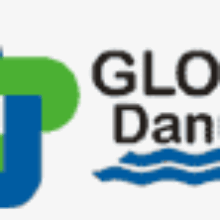GLOWA-Danube: Human Capacity Building, Phase 1
- Abstract
-
The creation of an educational forum and a centre of exchange for the GLOWA-Danube Project with the aim to stimulate the interdisciplinary communicationbetween GLOWA researchers and junior scientists from around the world is the central objective of Human Capacity Building. Six scholarshipscoupled with close supervision are to be awarded to highly qualified junior scientists throughout the duration of this project.
Results:
The first three scholarship holders began their studies in the program "Water Resources Engineering and Management" (WAREM) in September 2001 withthe Preparatory Semester. During this semester, the students are given the opportunity to refresh their knowledge of the water sciencesfundamentals, as the students have in part very different educational backgrounds. Both the heterogeneous composition of the group and thefact that many of students have spent some time working practically render this repetition necessary. Parallel to these lectures, the students also participate in 8 SWH German classes.
In the short period since the scholarship holders have taken up their studies, a course of instruction on the digitisation of data has been offered. Hence they are now able to operate the digitisation equipment, scanners and other hardware available in Stuttgart and to process project data. In the medium-term, it is planned to actively integrate students in the modelling of groundwater flow and transport processesby means of "Independent Studies" and "Master's Theses".To this end, a four-day MODFLOW short course from a Stuttgart engineering company was offered. The students became acquainted with the structure of the finite-difference groundwater flow model MODFLOW and were granted theopportunity to experiment with the model, to manually create input files, to further process output files and to portray the results.Particular emphasis was given to the possibility/necessity to generate missing data (time series) with the help of parameters.These and similar questions are of particular importance for the implementation of such programmes in emerging and developing countries, as available data often cannot fulfil the temporal and spatial data requirements of the programmes.
During the semester break between the WS 2001/02 and the SS 2002, the scholarship holders will begin employing these newly acquired techniques data digitisation, processing, and modelling for directlyproject-related applications. A short course in GIS (Geographical Information Systems) is planned for the year 2002 which should enable the students to integrate digitised data in the MODFLOW-model and tovisualise the results.
A successful example of know-how transfer to a developing country is the Master's Thesis of a Ghanaian student dealing with the creation of a digital geological map of Ghana. The conceptual formulation of the task and the supervision of the thesis were carried out together with the ZEF in Bonn (GLOWA-Volta). Here, first indications of networking are becoming apparent.
- Project manager
-
Kobus, Helmut
- Deputy
- Research assistants
-
Schmid, Christoph
Nickel, Darla - Department
-
VEGAS
- Duration
-
From: 2001-01-01
To: 2004-02-29
- Finances
-
Federal Ministry of Education and Research (BMBF)
- Cooperation partners


